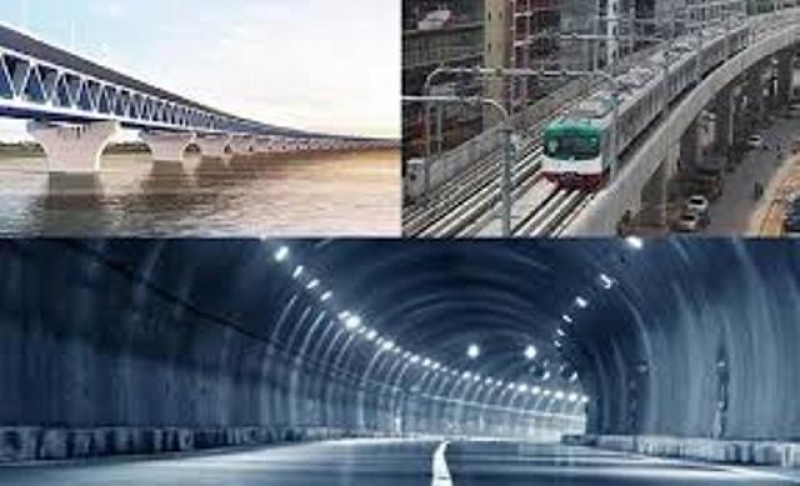- UNGA urges renewed int’l efforts for a resolution of Rohingya crisis |
- First National AI Readiness Assessment Report Published |
- China calls for implementation roadmap for new finance goal |
- New gas reserve found in old well at Sylhet Kailashtila field |
- Revenue earnings shortfall widens in October |
White Paper: Mega project costs surged by 70% due to graft during AL rule

The white paper on mega projects submitted to CA Prof Muhammad Yunus
Dhaka, Dec 2 - Corruption in large-scale public projects has caused an average cost escalation of 70 per cent and delays of over five years, according to the white paper on the state of the economy.
Of the $60 billion invested in ADP and development projects over the past 15 years, $14–24 billion (1.61–2.80 lakh crore BDT) has been lost to political extortion, bribery, and inflated budgets, according to the white paper.
The document was submitted to Chief Adviser Prof Muhammad Yunus by Dr Debopriya Bhattacharya, head of the white paper committee, on Sunday.
The paper said that the misappropriation of funds during land acquisitions and the appointment of patronised project directors have further strained resources, undermining potential benefits from infrastructure and social investments.
Debapriya unveiled the report to the media at the NEC room in the Planning Commission on Monday.
It said that systemic tax evasion, misuse of exemptions, and poorly managed public finances have deprived the state of critical resources, stalling development.
Between 2009 and 2023, illicit financial outflows averaged USD 16 billion annually—more than double the combined value of net foreign aid and FDI inflows. Moreover, halving tax exemptions could double education funding and triple health allocations, underscoring the significant fiscal opportunities lost to corruption.
The paper mentioned that manipulated domestic production figures and understated demand for key commodities, such as rice, edible oil, and wheat, have destabilised markets.
Erratic and politically influenced procurement policies have benefited powerful business groups while exacerbating consumer hardships. The absence of robust regular stock monitoring has only compounded these distortions.
In the banking and financial systems, the politically influenced lending practices have deepened the banking sector crisis, with distressed assets (as of June 2024) equivalent to the cost of constructing 14 Dhaka Metro systems or 24 Padma Bridges.
Persistent loan defaults and high- profile scams have eroded financial stability and diverted capital away from productive sectors.
Over the last decade, BDT 13.4 lakh crore (BDT 1.34 trillion) has been funnelled through hundi transactions by recruiting agencies for visa purchases—an amount four times the cost of constructing Dhaka MRT 06 (Uttara-Motijheel).
Syndicates and exploitative recruitment practices have deprived migrant workers of equitable access to employment and diminished remittance contributions to the economy.
In the social safety nets, misallocations within social protection programmes have left millions of people vulnerable.
As of 2022, 73 per cent of social safety net beneficiaries were classified as non-poor, a significant increase from 66 per cent in 2016. Over 20 million individuals remain just two days of lost work away from falling into poverty, highlighting the systemic inequities exacerbated by corruption.
In the environmental mismanagement sector corruption within climate adaptation funding has exacerbated environmental degradation. Politically patronised mismanagement of climate resources has derailed sustainability initiatives, threatening long-term resilience against climate-induced risks.-UNB

